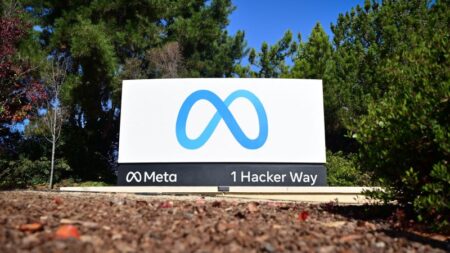The use of artificial intelligence will reduce the number of workers at thousands of companies over the next five years, according to a global survey of C-suite executives published Friday.
The wide-ranging poll of 2,000 executives, conducted by Swiss staffing firm Adecco Group in collaboration with research firm Oxford Economics, showed that 41% of them expect to employ fewer people because of the technology.
The survey’s results provide another indication of the potential for AI and generative AI — which can create original text, images and other content in response to prompts from users — to revolutionize employment and the way people work.
AI is emerging “as a great disruptor in the world of work,” Denis Machuel, chief executive of Adecco Group, said in a statement. “Companies must do more to re-skill and redeploy teams to make the most of this technological leap and avoid unnecessary upheaval.”
The executives surveyed work in 18 industries — including energy, retail and the automotive sector — in nine countries, including the United States, Canada, Germany and Japan. Their workforces represent white-collar and blue-collar jobs.
Some 46% of executives said they would redeploy employees internally if their jobs were impacted by AI. And two-thirds said they planned to recruit people skilled in AI compared with just over one-third who said they would train their existing workforce in the technology.
The survey makes for grimmer reading for workers than another recent large poll, conducted by the World Economic Forum last year. Responses from more than 800 global companies showed that a quarter of them expected AI to cause job losses, while half thought the technology would create new jobs.
The WEF said employers expected most technologies, including AI, to be “a net positive” for jobs over the following five years. “Big data analytics, climate change and environmental management technologies, and encryption and cybersecurity are expected to be the biggest drivers of job growth,” it noted.
Still, that offers little consolation to the workers AI has already helped push out. In the past year, some tech firms, including file storage service Dropbox and language-learning app Duolingo, have cited AI as a reason for making lay-offs.
Goldman Sachs economists said in March last year that as many as 300 million full-time jobs could be lost or diminished globally by the rise of generative AI, with white-collar workers likely to be the most at risk.
Read the full article here











